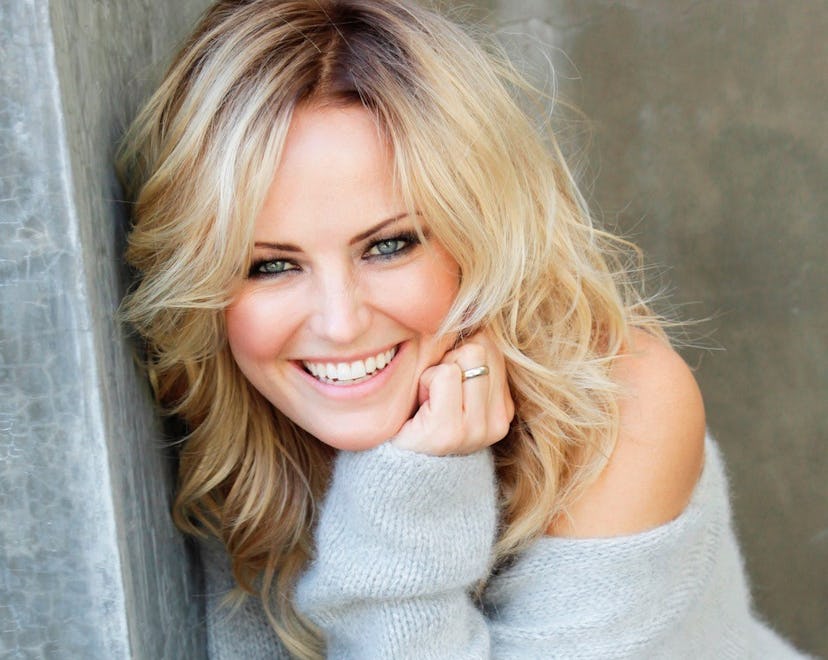Mental Health

“I Thought I Was The Only One:” Malin Akerman Opens Up About Her Family History & The Mental Health Crisis
“If we think of it as our problem as a community, it's ours to solve.”
“I thought I was the only one,” says actor, mom, and mental health advocate Malin Akerman. “I wish as a kid that someone would have [had] the conversation with me so I didn’t feel so left out. Other kids also had parents who were depressed or struggling... I had no idea.”
Akerman, whose prolific film and television credits include The Aviary, Billions, Harold & Kumar Go to White Castle, 27 Dresses, Watchmen, Dollface, and the upcoming Slayers, has always been invested in children’s mental health, in part because of her own struggles as a child. A few year after immigrating from Sweden to Canada when she was 2, her parents separated and her father moved back to his home country. “I grew up with a mother who struggled with manic depression,” explains Akerman. “We never spoke about it because there’s too much stigma around it.”
When her brother was diagnosed with severe OCD, she says it was a wake-up call on how badly dialogue and education was needed about mental health.
This World Mental Health Day on October 10, Akerman’s deep personal connection to the mission inspired her to join forces with On Our Sleeves, a nonprofit initiative powered by the Nationwide Children’s Hospital centered around children’s mental health. The organization provides free resources across the country to educate families and advocates to break child mental health stigma so that no child or family should struggle alone.
“Just looking at the statistics, one in five kids are struggling from mental health issues, that's too much,” Akerman says. “And not only kids, but adults. We're in a state of public health emergency when it comes to mental health.”
Becoming a parent spurred her to delve deeper into her past, explains the actor. In working with her therapist, she realized, “I have to be strong, strong enough, where I have to get enough rest and treat myself well and love myself in order to be able to do that for [my child].”
Akerman, whose son is 9 years old, believes that the best we can do for our kids’ mental health is to ask questions. “Put down all your devices, go outside, be with your kid, really be with them and listen,” she says. “Not just what they're saying, but what's happening on a deeper level.” Because children may not have the vocabulary to express what they’re experiencing, Akerman values asking open-ended, curious questions and approaching her child with a sense of wonder.
“On Our Sleeves has a wonderful tool for this,” she shares. “They have different questions to ask kids at the dinner table and you can answer them yourself, so you can model how you deal with big emotions and some of the things that you do right, some of the things that you do wrong.”
Once you have a kid, it's like they hold a mirror to you and you have to look at yourself.
In interviewing Akerman, I was struck by how much we have in common — we both immigrated as children and were caught between cultures; we both had difficult childhoods involving parents who didn’t have the mental health tools to help themselves; and we both grew up too quickly.
“Once you have a kid, it's like they hold a mirror to you and you have to look at yourself. You look at yourself in a whole other light,” shares Akerman, her statement resonating deeply with me. “You can hide inside yourself when there's no one else looking at you. But when you have a kid, all of a sudden, all your true colors come out.”
Like Akerman, my past experience necessitates that I take care of my mental health and prioritize my child’s social, emotional, and physical wellness. The fact that this glamorous, talented actor and I seem to have so much in common proves again how mental health affects everyone and does not discriminate. Mental health is health — and it is not an “us versus them” problem. We will all struggle at some point in our lives, no matter who we are. And as parents, it is imperative that we fight stigma and provide our kids with the tools to take care of their mental health, before it’s too late.
Akerman stresses the importance of therapy and mental health awareness in helping her to break unhealthy patterns in her family so that it doesn’t get passed on to her son. “I love organizations like On Our Sleeves,” she adds. “I can go in and find tools that I need to be a better mentor for my kids.”
Ultimately, Akerman and I agree that mental health is an issue to be tackled holistically. As she says, “If we think of it as our problem as a community, it's ours to solve.”
About On Our Sleeves: Powered by behavioral health experts at Nationwide Children’s Hospital and collaborating partners, On Our Sleeves aims to provide every community in America with free resources necessary for breaking child mental health stigmas and educating families and advocates, because no child or family should struggle alone. Since the inception in 2018, more than 3 million people in every state have interacted with the movement’s free pediatric mental health educational resources at OnOurSleeves.org.
If you or someone you know is seeking help for mental health concerns, visit the National Alliance on Mental Illness (NAMI) website, or call 1-800-950-NAMI (6264). For confidential treatment referrals, visit the Substance Abuse and Mental Health Services Administration (SAMHSA) website, or call the National Helpline at 1-800-662-HELP (4357). In an emergency, contact the National Suicide Prevention Lifeline at 1-800-273-TALK (8255) or call 911.